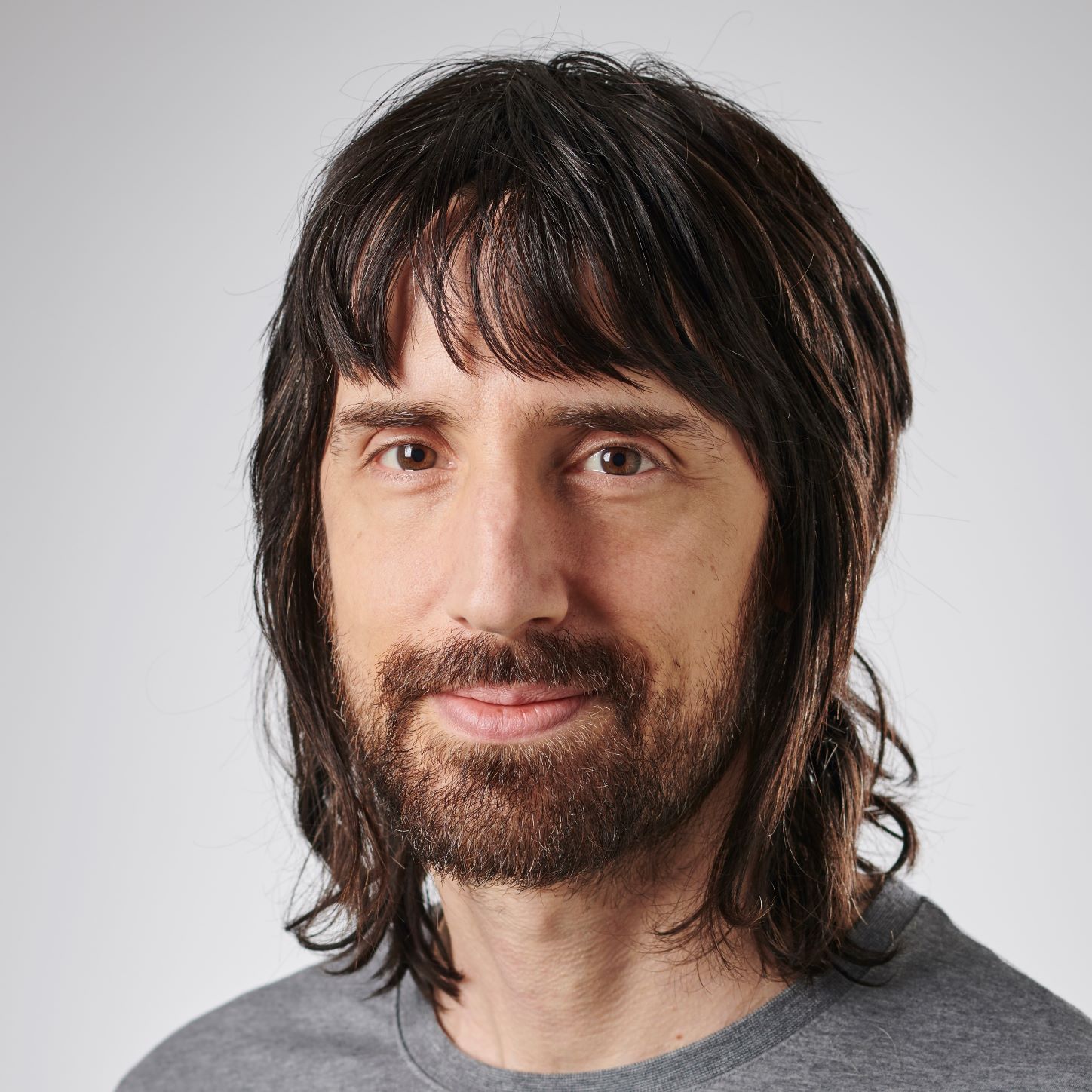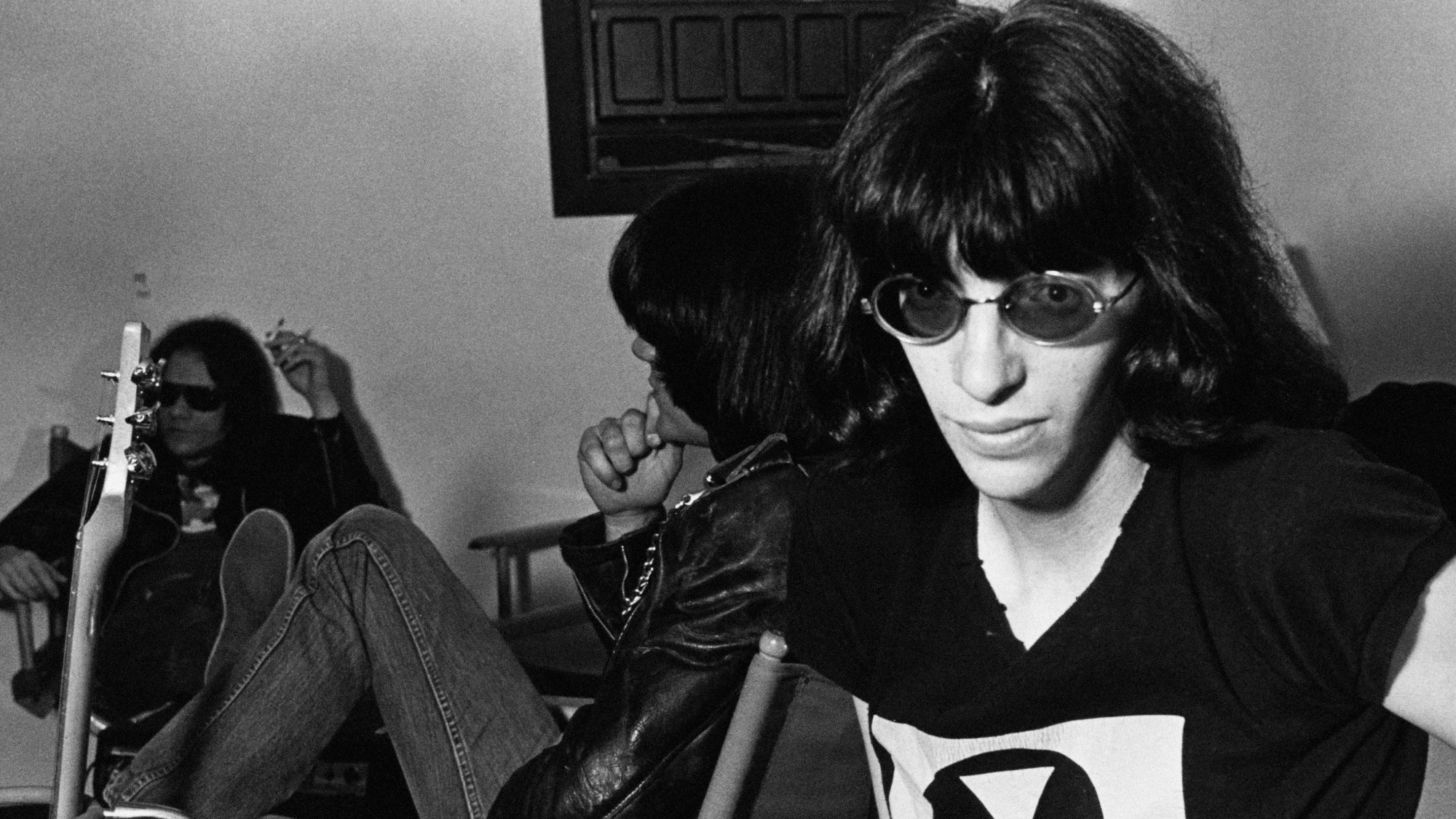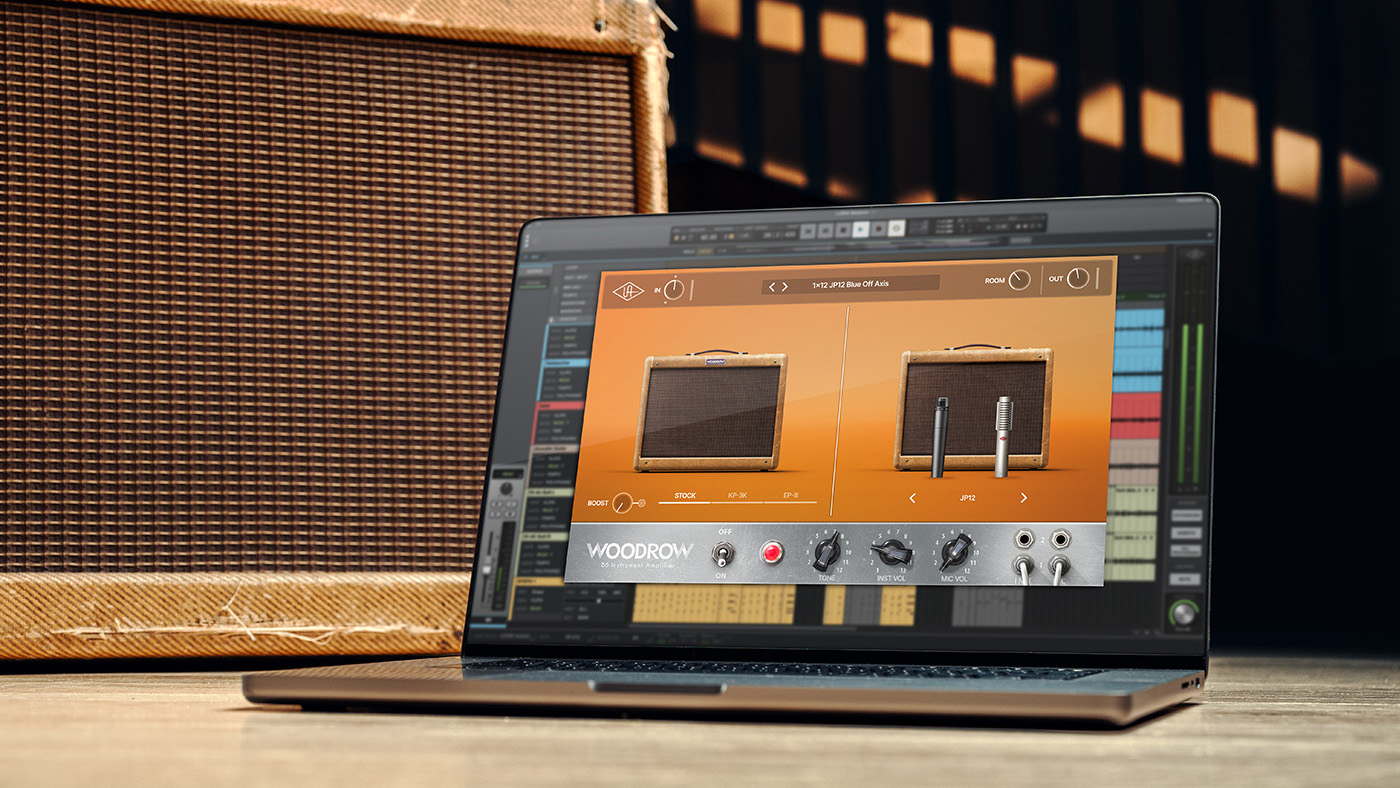Interview: Steve Hackett talks new solo album Surrender Of Silence and returning to touring
"I think every guitarist is always chasing the ultimate sound"
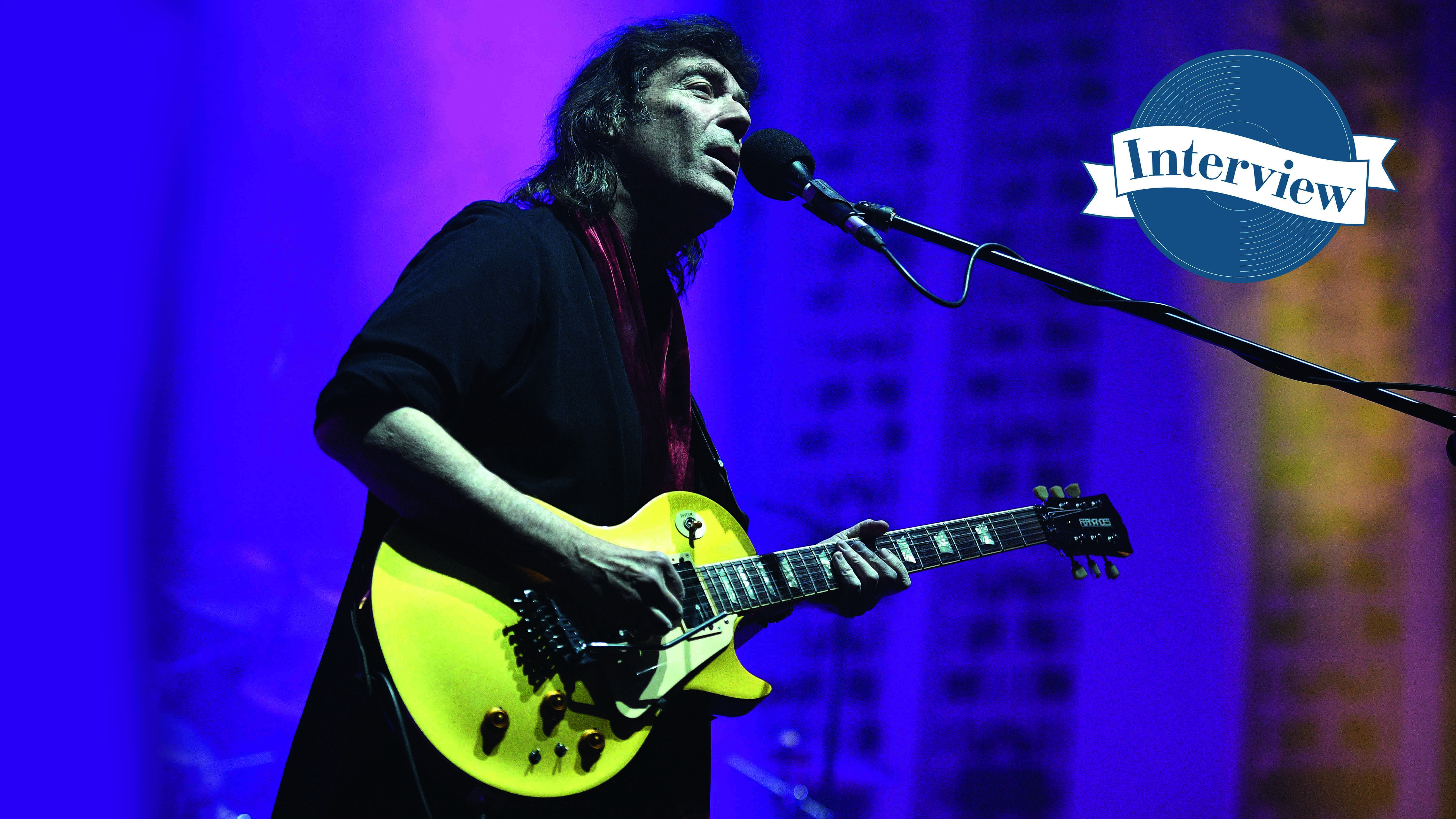
Guitar Showcase 2021: We spoke to Steve Hackett is in the midst of his Seconds Out + More! UK tour. Though the initial 2020 dates were postponed, life appears to be returning to (ab)normal as this celebration of the 1977 Genesis live album finally gets underway.
“It’s going very well indeed,” he tells us. “It’s extraordinarily well attended. I didn’t expect to see so many people. Everyone’s risking their lives to come out and see this, so it must be at least as important for them as it is for me.”
The first date of this huge nationwide tour fell on the same day Hackett’s latest solo album – Surrender of Silence – hit the shelves. Appearing just months after his second long-player of the year – the acoustic Under a Mediterranean Sky – it appears the Genesis guitar legend has been keeping himself very busy indeed during lockdown.
We’ve had less people in the studio working face-to-face but not necessarily fewer people involved
Firstly, 2021 is something of a landmark year for you, having joined Genesis in 1971…
"A mere 50 years ago, and I’m still a sprightly young lad. I’m getting younger all the time. My portrait in the attic has to be retouched from time to time… I would have celebrated 1971-2021, but we’d already advertised we were doing the Seconds Out tour which was from 1977, and that was already selling very well. And then the pandemic happened."
In the meantime, yourself and your wife, Jo, have worked on another new album, Surrender of Silence…
"She contributed a lot: melodies, lyrics, ideas for songs, and the general feel of this album. That makes quite a bit of difference to me. I like working with a songwriting partner – I enjoy that very much. I’ve got a couple of songwriting partners: Jo, and Roger King."
Get the MusicRadar Newsletter
Want all the hottest music and gear news, reviews, deals, features and more, direct to your inbox? Sign up here.
How did you go approach the recording?
"Jo and I normally flesh out an idea on paper so that we’ve got a framework when we start recording it with Roger. We’ve had less people in the studio working face-to-face but not necessarily fewer people involved.
"File sharing has enabled world music to self-perpetuate. You don’t always have to travel, but Jo and I are world travellers and we’ve visited a lot of fascinating places like Ethiopia, which is explored on the track Wingbeats on the new album. Once you’re outside the capital Addis Ababa and in the countryside in the midst of nature meeting people it’s extraordinary."
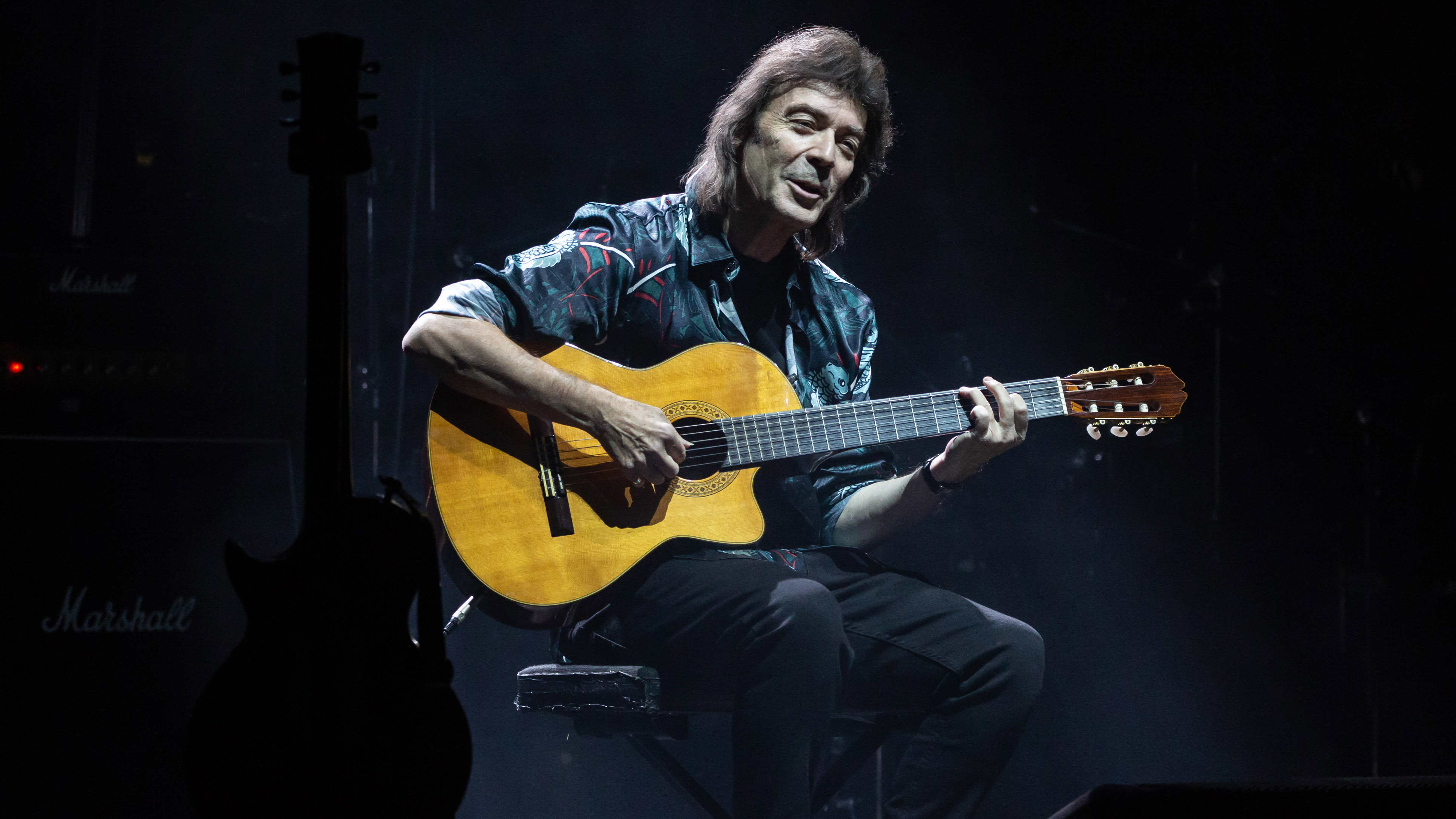
And you’re travelling again right now…
Yes, it’s funny – you’d think the modern world would be easier and more functional, but it just seems like there’s more to go wrong. We checked in to the hotel yesterday and the heating doesn’t work, the windows don’t open, the phones don’t work. It seems the more modern the hotel the less things seem to work… Breakfast was nice though!
Has touring changed much in that respect?
In many ways touring is the same as it was 50 years ago – a familiar discomfort. I’m very used to life on the road. You know where you stand with that stuff. Like last night, we checked in to our hotel about two o’clock in the morning and walked into a freezing room. But that’s all just part and parcel. It’s great to be back on the road and in front of audiences.
Travel seems to be a recurring theme with your records...
The past four or so albums have had an aspect of travel about them. Earlier this year we also released Under a Mediterranean Sky which is an acoustic album. Each track was a quick sketch, if not a portrait, of the various regions and cultures visited. Where possible, we were using local instruments.
Under a Mediterranean Sky is probably more romantic escapism with a big toe in world music – at times deliberately anachronistic, perhaps to access a gentler time. Whereas Surrender of Silence is very much rooted in the modern world. Even though tracks like Natalia and Day Of The Dead subscribe to other cultures.
What was your inspiration behind Natalia?
"Natalia – the second track – was consciously referential and deferential to Russian composers. Particularly Prokofiev. There are also lots of clues in there about Tchaikovsky and Stravinsky. I think of Prokofiev as being more challenging harmonically – more angular; Tchaikovsky as more heart-wrenchingly romantic; and Stravinsky more percussive and dissonant. We deliberately tried to reference those areas in the midst of a song."
If you want anything really good, it can take time, whether you’re playing it or if you’re waiting for someone else to play be able to play it
Tell us a bit more about the ins and outs of the recording process…
"There was a certain amount of file sharing. I recorded at home with Roger with input from Jo, and other musicians sent in their performances. It was like we had a second camera unit that was always roaming around the world looking for interesting performances from far away others.
"For instance, we had a guy from Tajikistan [Sodirkhon Ubaidulloev] playing the dutar on Shanghai To Samarkand. He was recommended by a guy I’d worked with before from Azerbaijan called Malik Mansurov who played the tar. Those two instruments – the dutar and the tar – are related to the guitar.
"We had different drummers – some real, some virtual – all mixed together. And we had Christine Townsend playing wonderful viola and violin. We tend to track her up quite a bit to create a huge-sounding string section.
It’s a bit of a slow process. Any onlooker would find it as tedious as watching paint dry. But when the paint is dry, it all suddenly becomes a wonderful fresco of possibilities."
Recording studios are rarely as exciting as people imagine…
"No, they’re not. If you want anything really good, it can take time, whether you’re playing it or if you’re waiting for someone else to play be able to play it. There are no quick routes to nirvana.
"I think [Surrender of Silence] is a special album. It’s very intense. It’s very full-on. I think each track within itself is very interesting. But when I hear it all as an album I go, ‘Oh my god, I need a break!’ You know. It keeps coming at you."
In that sense is it fair to say Surrender of Silence is more a collection of short stories than a novel?
"That’s a lovely way of looking at it. I like the idea of having a widescreen in your mind and thinking, ‘If I’m commissioning myself to do this movie, what is the cast of instruments?’ And so we do a lot of culture hopping and swapping in order to make that happen – often in the course of one song."
I’m no longer bound by identity. I mean, if you want that there’s the Genesis connection, of course
It’s a very ambitious album. It sounds like you were reaching for something special…
"More accomplished music is almost more of a professional rather than recreational interest. I first began thinking, ‘Here’s an arena where I can be involved, rather than be a spectator,’ in the mid-1960s when you had The Beatles and the blues competing for supremacy in people’s minds.
"There was Cream and Hendrix on one hand and The Beatles on the other, who were doing this inclusive music with lots of instruments you wouldn’t recognise. It was hugely ambitious, especially considering the [recording] technology. And they had the world’s ear."
Considering your identity as a guitarist do you think people will be surprised by what they hear?
"I was worried about Natalia, which seemed to be the flagship for the album. I thought, I don’t know how people are going to take this because they’re going to buy a guitarist’s album and it’ll be about three minutes before they hear a note of guitar. So, identity came calling. But I’m no longer bound by identity. I mean, if you want that there’s the Genesis connection, of course. But my solo albums are not limited to that."
Surrender of Silence opens with a strong guitar statement, however...
"The first track – The Obliterati – comes in with tapping and phase shifting. I was using an old MXR phaser. I like both the Phase 90 and the Phase 100. Sometimes vintage gear works, and sometimes it’s a newer version of the same thing – often something less dependent on batteries!"
Have you found that to be an issue?
"Yes. I have to change batteries in my Sustainer every gig, because with the Fernandez guitars there will sometimes be issues. I don’t know what it is, but they seem to eat batteries more when you’re on the road. At home, I keep the same battery in there for months. I think equipment gets tired on the road. I’m going a bit Carlos Castaneda here, but it’s like these things have souls. If you’re tired, so is your equipment. You feel great, so is your equipment."
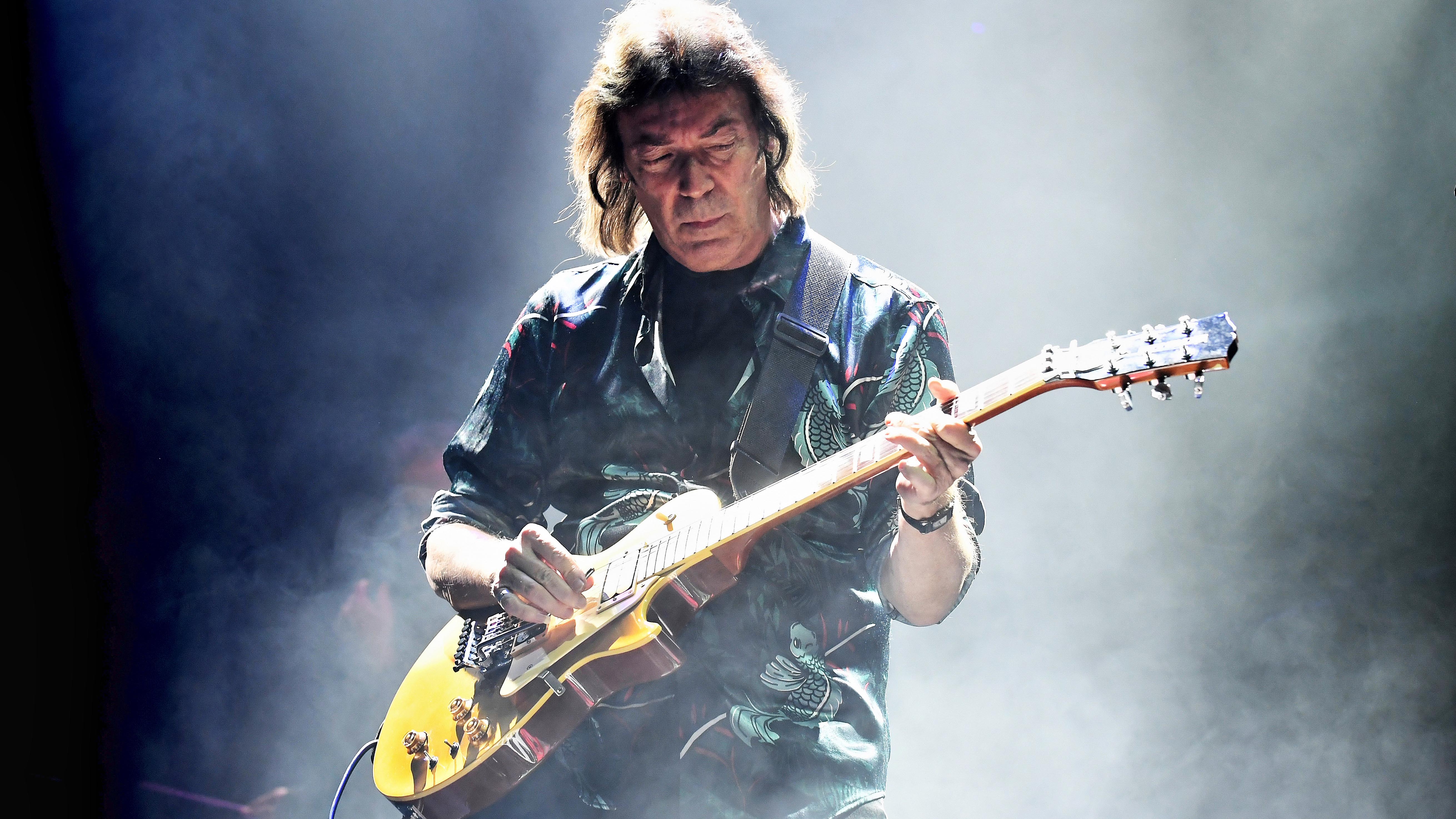
What gear have you taken out on the road?
"I use Engl amps and I use an old SansAmp [GT2 by Tech 21] for distortion. And for my fuzz-style distortion I use the yellow Line 6 [DM4 Distortion Modeler]. I’ve also got the green Line 6 [DL4 Delay Modeler] delay. I use a DigiTech Whammy for various things, unfortunately, I’m always bending down in the show to switch the setting, but what the hell.
"In the past, I have used a rack, but I can get the sounds I need with pedals. I think every guitarist is always chasing the ultimate sound. Sometimes you’ve got it for a bit. Guitars are very tricky things!
Silence Of Surrender is out now on Inside Out Music. Steve Hackett play the UK as part of the Seconds Out world tour in September and October 2021 before heading to mainland Europe in November. More info at hackettsongs.com
Rod Brakes is a music journalist with an expertise in guitars. Having spent many years at the coalface as a guitar dealer and tech, Rod's more recent work as a writer covering artists, industry pros and gear includes contributions for leading publications and websites such as Guitarist, Total Guitar, Guitar World, Guitar Player and MusicRadar in addition to specialist music books, blogs and social media. He is also a lifelong musician.
“Every note counts and fits perfectly”: Kirk Hammett names his best Metallica solo – and no, it’s not One or Master Of Puppets
“I can write anything... Just tell me what you want. You want death metal in C? Okay, here it is. A little country and western? Reggae, blues, whatever”: Yngwie Malmsteen on classical epiphanies, modern art and why he embraces the cliff edge
